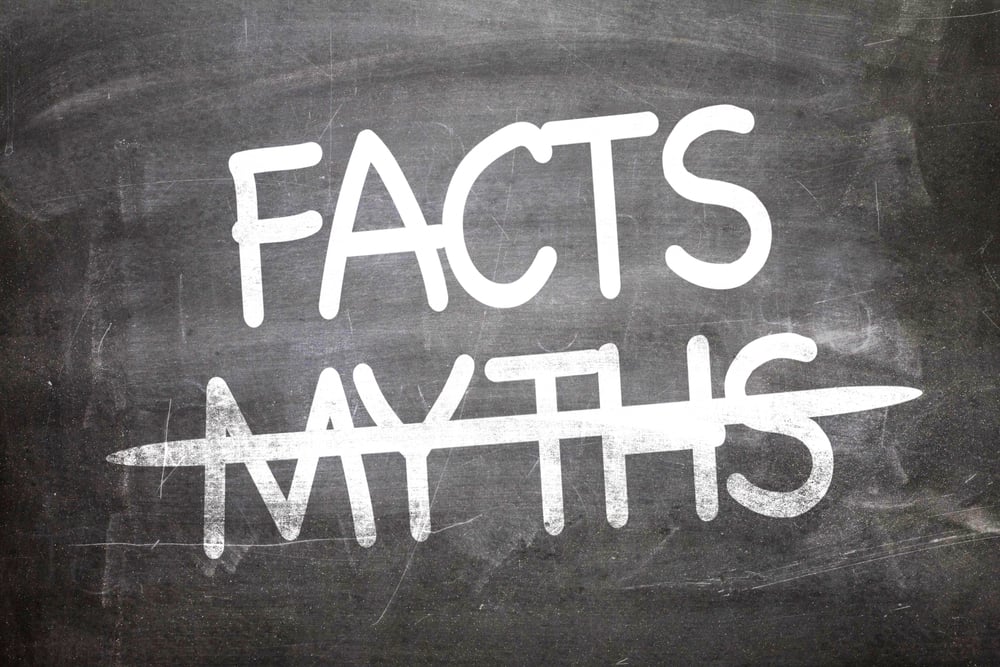Interviews with sales and marketing experts
Often, in business, we see things only from the perspective that we’ve gotten used to. We ask the same questions and expect the same answers. We get stuck in our ways. I wanted to get a wider perspective and see if the challenges are similar/different in various markets. These discussions were both educational and inspirational.

The questions I asked these sales gurus were:
- What are the most common struggles in sales that companies approach you with?
- Are these challenges different between B2B and B2C organizations?
- Are sales challenges different for small businesses, SMEs, and large enterprises?
There are a variety of challenges that businesses face, but the further these interviews went the easier it became to identify recurring problems. The most common themes are presented in the next chapter.
Sales Challenges
Lack of structure
The most common problem was companies lacking structure in their sales culture, and having no common practices nor a documented sales process. The lack of structure and process creates for example the following symptoms:
- Inability to generate new leads
- Inability to accurately identify the target market
- Deals are stuck in the pipeline
- Deals keep slipping and bouncing
Sales leaders often see these “symptoms” and make the mistake of relying on quick fixes, such as training, new devices, or tools but are unable to see the actual root of these problems. Many times sales leaders don’t know what the actual problem is before they talk to an outside consultant.

Change on the company and personal level
Another big issue related to quick fixes is that there is no actual focus on changing behavior. Change doesn’t happen overnight and there is no quick fix to lack of structure and process. Organizations need to align their sales process with actual behavioral change. And the change needs to happen both on an organizational and on a personal level.
Missing skills and training
A recurring theme in the interviews was sales leaders often not having the skill set to succeed in a leadership role. They’ve been promoted to a leadership role because of their great results in sales. But being a great seller does not always mean you’re a natural sales leader. They haven’t been trained or coached to become a sales leader. In many cases, this leads to sales leadership only trying to keep it all together instead of actually running and leading the operation. This also leads to the sales being dependent on the high-performing individual salespeople instead of relying on a well-structured sales process. Sales teams today are also becoming more diverse, with non-sales employees increasingly involved in the process. These individuals often engage in customer interactions but lack the skills to influence the sale effectively. For inspiration on how to build more effective and specialized sales teams, you can explore Functional Sales Resume Examples, which provide insights into showcasing specific sales skills and leadership attributes.
Sales was also found to include more people than before. Some organizations are trying to find ways of improving the sales skills of non-sales employees that are involved in the sales process. Non-salespeople are often involved in customer interactions but are unable to effectively influence the sale.

Inaccurate forecasting
Another theme that was voiced by multiple consultants was forecasting. Some felt that sales organizations' forecasts are too inaccurate, while others had experiences of companies not putting in any thought into forecasting. This is probably a symptom of sales leadership lacking the skills required to run a sales organization which also ties into the lack of structure and process.
Wasting time on non-revenue generating tasks
Another challenge that was recurring was non-revenue generating tasks. Salespeople waste too much time on tasks that are not actually selling. Often reps have to prepare their own sales collateral, follow up on payments and shipments and help the customer post-sale.
Differences between B2B and B2C organizations
Most of the people interviewed felt that there are no actual differences between B2B and B2C sales. In both cases, you are selling in a person-to-person setting and you have to address your counterpart on a personal level.
Sales challenges are similar in organizations of any size
Most found that the size of the company doesn’t affect the challenges that sales organizations face. The actual challenges and themes are very similar. At the end of the day, it is all about how companies can sell more, how they can retain customers, and how do they recruit and develop the best sales talent.
Large organizations are too complex
The biggest difference that came up between small businesses, SMEs, and large Enterprises is in the complexity of managing the sales organization. The bigger the company the more structure, processes, systems, and technologies are required to manage the sales organization. This leads to more complexity and makes it harder to drive change. Large global enterprises also struggle with local versus global practices. There are cultural differences within an organization and something that works in the Nordics might not work in South America.
Small companies lack structure
Small companies often don’t have enough structure in their sales. There is no documented sales process and the entire operation relies on individual employees. Often there is no true sales leadership either. Smaller organizations are, however, more agile, more willing to develop their sales organization, and more open to change. Small companies and SMEs face challenges related to winning new business and international growth. Whereas large enterprises are struggling with increasing profit margins and existing accounts.
Buyer preferences have changed
Others found that it’s not the size of the company that matters, but their own maturity and the one of the market they are operating in. What B2B sales are currently facing is changing buyer preferences: consumer-driven buying behavior (social media, forums, peer-to-peer advice, online shops, etc.) is getting more common and salespeople have to take care of e.g. LinkedIn in addition to their old means of communication.

Solutions
Right now is the perfect time to start and to ensure your sales organization is functioning properly. There might be issues that need to be dealt with urgently, but you shouldn’t overlook the potential underlying challenges that slow down long-term growth.
Five concrete tips to develop your sales:
1. Invest in strategy, structure, and process
Don’t let your sales become dependent on individual sales peoples’ performance. Create common practices that keep your sales in motion.
2. Look at the big picture
If there’s something lagging behind in your sales, don’t go for the quick and easy fix. Take the time to figure out what is the underlying problem causing these symptoms.
3. Make sure your sales leader is qualified to lead your sales organization
You can use training, coaching, mentoring, or other forms of education. Make sure they’re getting the training needed to succeed.
4. Develop the sales skills of ALL customer-facing professionals
Sales is not only for salespeople. Your marketing, customer success, and customer support teams need to know how to sell as well.
5. Optimize your salespeople’s time around selling
Don’t let your salespeople waste time on creating their own sales presentations or doing other non-revenue generating tasks.
Additional Resources
Showell
We help sales teams excel in sales meetings with a fast and powerful sales enablement platform. We enable sales organizations, from small companies to large enterprises, to close more deals with convincing presentations and a winning buyer experience.
- Manufacturing Sales Enablement
- Life Sciences Sales Enablement
- Financial Services Sales Enablement
- Field Sales Enablement
- Wholesalers Sales Enablement
- Insurance Sales Enablement
- Pharma Sales Enablement
Research
Miller Heiman Group has also identified 12 best practices that drive results in sales. You can find the study from here.
About the author

Ville Kleemola
Ville is an advocate for cross-functional collaboration. He writes about Sales Enablement, Sales and Marketing alignment, and Customer Experience. Ville is passionate about enabling sales organizations to reach new heights.
Interviewed professionals
Antti Paussu (Nordics)
Kasvu Partners: Growth strategy, sales process, and sales playbooks.
Satu Ahlman (Nordics / UAE)
Saga Performance: Leadership & performance optimization.
Michael Hopke (DACH)
MHO Consulting: Sales performance and leadership development.
Romeo Baertsoen (BeNeLux)
The Skein Company: Strategic sales, marketing & sales enablement training, coaching, and consulting.
Renate Hezemans (BeNeLux)
Commercial Enablement Partners: Interim management, consultancy, training & coaching for small to medium-sized B2B companies.
James Bennett (UK)
AskPathFinder: Sales consulting and coaching.
Jamie Martin (UK)
Correct Careers Coaching: Sales training, sales process & revenue strategy.










